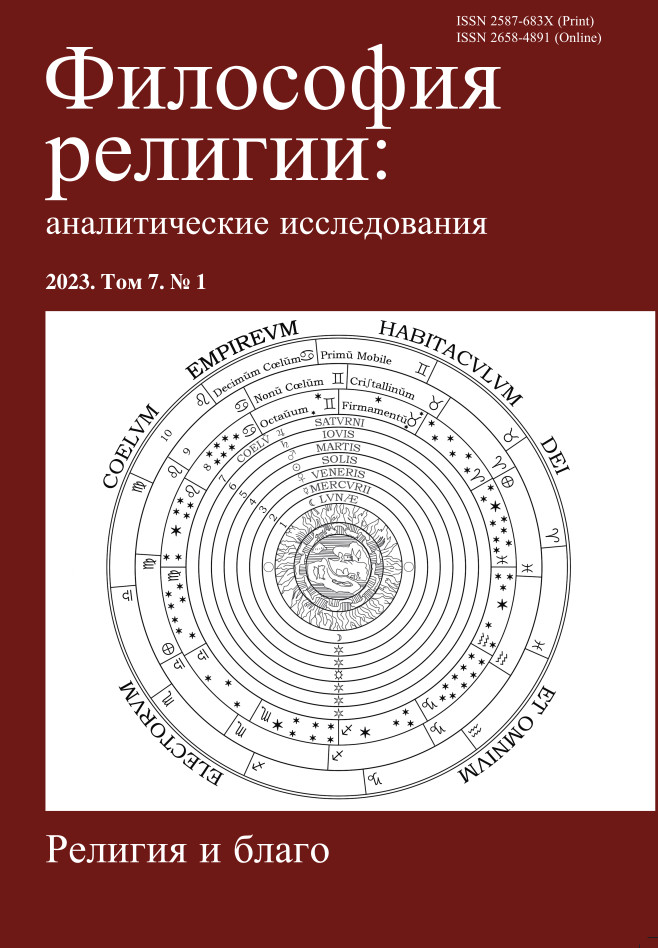On the Criteria for Evaluating Human Actions in Ismailism
DOI:
https://doi.org/10.21146/2587-683X-2023-7-1-121-142Keywords:
Arab-Muslim Philosophy, Ismailism, Deed, Dawat, Zahir, Batin, Imam of time, Divine knowledge, ShariaAbstract
The article is devoted to the problem of evaluating an act in the light of Ismaili teaching. In the first part of the article, a pair of meta-categories of the Arab-Muslim reflective tradition “explicit-hidden” is considered, which is reflected in all theoretical disciplines of Islamic culture. An act is understood as an action (external) connected with an intention (internal). A person can perform actions on two levels: at the level of relationship with God and at the level of relationship with society. Due to the absolute transcendence of God, the relationship with God is transformed into reverence and worship, but at the same time there is an active development and sacralization of relationships at the level of man and society. The second part of the article begins with an analysis of the role of the imam, compensating for the “lack” of divine providence and participation in the Ismaili view of the world. The Imam is endowed with divine knowledge, he knows the “hidden” meanings of Revelation. At the same time, Ismaili philosophers emphasized the need to observe the “explicit” meanings expressed in the laws of Sharia. The third part of the article is devoted to the consideration of the Ismaili society as a place of connection of the “explicit” and “hidden”. The full realization of the “explicit” and “hidden” generates “truth”. To take his place in the Ismaili society is the goal and obligation of a person within the framework of human – andhuman relationships: only by taking his place can he reveal his own dichotomy as much as possible – to become both a “benefit taker” and a “benefit giver”. Moreover, the Ismaili philosophers endowed the correct behavior and relationships of a person in the Ismaili society with a global meaning: a person became a co-creator of the universe, since the development of higher spiritual entities depended on the knowledge he received from the Ismaili imam of the time. The readers are offered a fragment of a treatise of the 11th century Ismaili philosopher Nasir Khusraw “Six Chapters” (Shish fasl), dedicated to the need for the guidance of the imam and explaining the meaning of the Ismaili hierarchy.
Acknowledgements: The study was carried out with the support of the Russian Foundation for Basic Research. Project No. 21-011-44130 “Religious and mystical traditions of Sufis, Alawites and Ismailis (based on the works of Abu al-Majd Sanai, Makzun al-Sinjari and Nasir Khusraw)”
 This work is licensed under a
This work is licensed under a 
